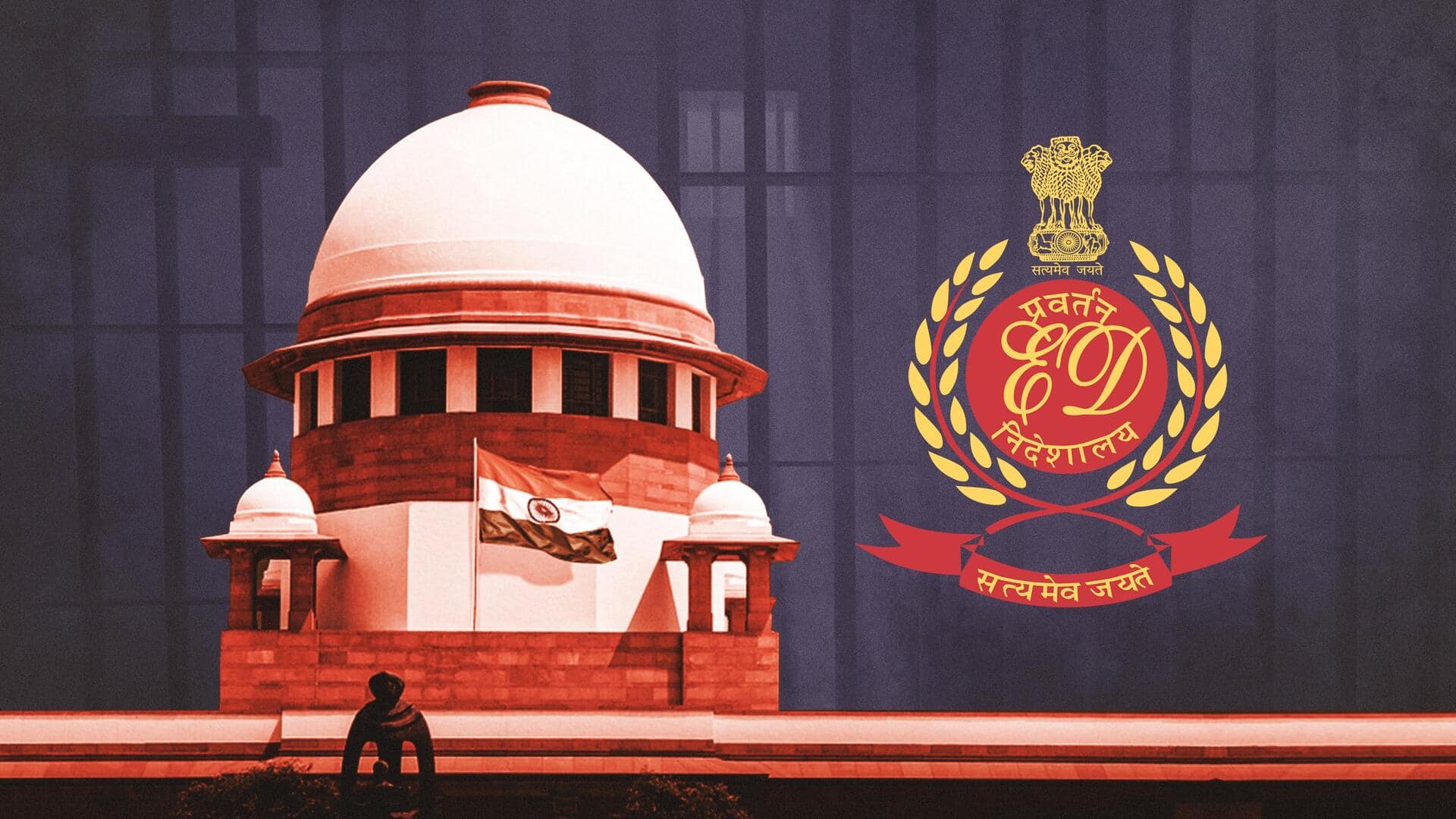
'ED can't be vindictive': Supreme Court overturns arrests of businessmen
What's the story
The Supreme Court has overturned the arrests of the directors of Gurugram-based realty group M3M—Basant Bansal and Pankaj Bansal—in a case under the Prevention of Money Laundering Act (PMLA), per NDTV.
In its order uploaded on Wednesday, the court criticized the Enforcement Directorate (ED) for allegedly not adhering to the "highest degree of fairness" and "transparency" in its actions.
This comes after the Punjab and Haryana High Court dismissed the Bansals' petition challenging their arrest.
What Next?
Supreme Court's strong observations on ED's actions
A bench of justices AS Bopanna and Sanjay Kumar while granting the bails, said the facts demonstrate that the probe agency "failed to discharge its functions and exercise its powers" in this case.
"Every action of the ED is expected to be transparent, above board, and conforming to pristine standards of fair play in action," it said.
"ED is not expected to be vindictive in its conduct and must be seen to be acting with utmost probity," the court said.
Insights
ED must give grounds of arrest in writing: SC
Moreover, the SC asserted that the failure of the accused to respond to the summons issued to them could not be sufficient grounds for arrest by the ED.
It said the agency must furnish the grounds of arrest in writing to the accused at the time of arrest.
"We hold that it will be necessary, henceforth, that a copy of grounds of arrest is furnished to the arrested person as a matter of course and without exception," the court said.
Details
What is the case against Bansals
The ED arrested the Bansals in connection with an alleged bribery case involving former special judge for the ED, Sudhir Parmar, and his nephew, Roop Kumar Bansal—a third director of M3M.
The agency claimed to have "reliable information" that Parmar was showing favoritism to Roop and his brother Basant.
The accused were summoned for questioning and subsequently arrested on June 14.
However, the SC held that the action violates Article 22(1) of the Constitution and Section 19(1) of the PMLA.
About
Know about plea filed by Bansals
The petition filed by Bansals reportedly pointed out that the FIR did not name Pankaj or Basant, as it was against Roop.
In July, the petitioners argued that powers given to the ED under the PMLA are leading to arbitrary arrests, and unless the ED is reined in, it will result in drastic consequences for citizens.
Their argument was noted by the top court under Section 167 of the Code of Criminal Procedure (CrPC) and listed for further hearing.